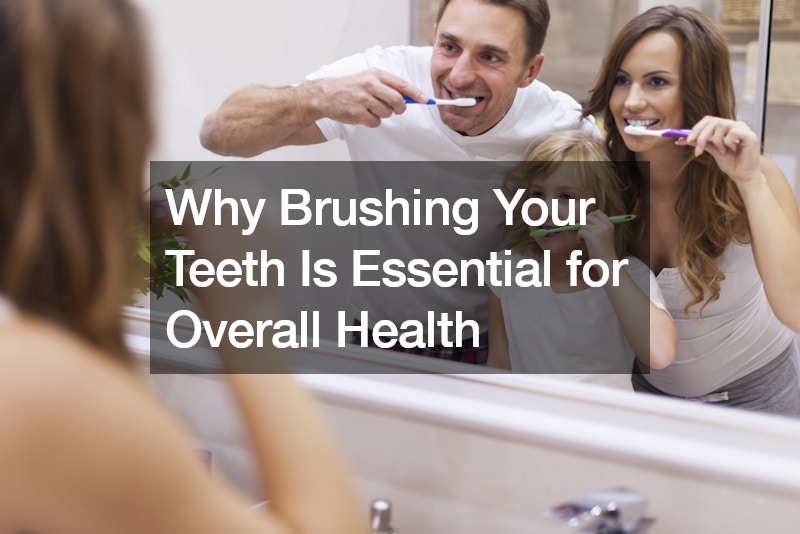Brushing your teeth is a daily routine that many people often overlook, but it’s a vital part of maintaining not just oral health, but overall well-being. This seemingly simple task helps protect against a host of serious health issues. Understanding the role of oral hygiene can encourage better practices and highlight the significant impact on our bodies beyond just our mouths.
Meet Streptococcus Mutans: The Oral Villain
Streptococcus mutans, commonly known as Strep, is a bacterium that lives in our mouths. Strep thrives on the sugar and protein left behind from the foods we eat, creating a slimy substance called biofilm on our teeth.
This biofilm, also known as plaque, is a sticky, bacteria-filled film that can coat our teeth if not regularly brushed away. While a little bit of biofilm isn’t initially harmful, neglecting it can lead to serious oral and systemic health issues.
What Happens When You Don’t Brush?
When you don’t brush your teeth regularly, food particles build up in the nooks and crannies of your teeth and gums, inviting bacteria to thrive. This buildup doesn’t just stay confined to your teeth; it extends to your gumline, causing irritation and inflammation. This inflammation is the first step toward gingivitis, characterized by tender and bleeding gums.
If gingivitis is left untreated, it can progress to a more severe condition known as periodontal disease. In this stage, the infection triggers your immune system, sending fighter cells to combat the bacteria. This battle, however, can also damage the surrounding tissue and bone. Over time, the destruction of this supportive tissue and bone leads to gum separation from the teeth, forming pockets where bacteria can further thrive, exacerbating the infection. Eventually, this can result in tooth loss.
The Systemic Impact of Poor Oral Hygiene
The consequences of poor oral hygiene extend beyond your mouth. When bacteria from periodontal disease enter your bloodstream, they can travel to other parts of your body, potentially causing severe health issues.
For instance, studies have shown that people with periodontal disease are significantly more likely to develop chronic conditions such as kidney disease. The constant inflammation and bacterial presence can strain your kidneys, impairing their function over time. Additionally, research has indicated a link between poor oral hygiene and an increased risk of dementia. One study found that residents in a retirement community who did not brush their teeth daily had a 65% greater risk of developing dementia compared to those with good oral hygiene habits.
Furthermore, there is evidence suggesting that the bacteria from periodontal disease can increase the risk of certain cancers. While poor general hygiene can contribute to these risks, the presence of harmful oral bacteria plays a critical role.
The Role of Dentists
Dentists play a crucial role in helping maintain oral health and preventing the systemic impacts of poor oral hygiene. Regular dental check-ups allow for the early detection and treatment of oral issues before they progress into more severe health problems. Dentists can also provide personalized advice on effective brushing and flossing techniques, recommend the best dental products, and offer professional cleanings that remove plaque buildup that regular brushing might miss.
Simple Steps for Better Oral Health
Maintaining good oral hygiene doesn’t have to be complicated. Here are some simple yet effective steps to ensure your teeth and gums stay healthy:
1. Brush Twice a Day: Use a fluoride toothpaste and a soft-bristled toothbrush. Brush for at least two minutes, covering all surfaces of your teeth.
2. Floss Daily: Flossing helps remove food particles and plaque from between your teeth and below the gumline, areas that your toothbrush can’t reach.
3. Use Mouthwash: An antimicrobial mouthwash can help reduce the bacteria in your mouth, freshen your breath, and provide an extra layer of protection.
4. Limit Sugary Foods and Drinks: Reducing your intake of sugary foods and beverages can limit the food supply for bacteria like Streptococcus mutans.
5. Visit Your Dentist Regularly: Regular dental check-ups and cleanings are essential for early detection and prevention of oral health issues.
Conclusion
Brushing your teeth is a simple daily habit with profound implications for your overall health. By maintaining good oral hygiene, you can prevent serious conditions like periodontal disease, which not only threatens your teeth but can also impact your entire body. Regular visits to the dentist and a consistent oral care routine are your best defense against these risks. Remember, brushing your teeth is more than just a way to maintain a bright smile—it’s a crucial component of your overall health and well-being.
.


